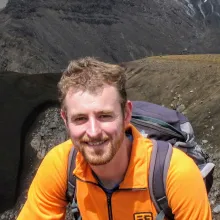Geodynamics
About
Geodynamic processes are the means by which the bulk chemistry of Earth is modified, with different elements concentrated into specific regions to produce geological phenomena such as ore deposits. Within the mineral systems framework, there are a plethora of processes invoked to control the genesis of different types of deposit. For example, copper porphyry systems occur due to magmatism above subduction zones, Rare Earth Element carbonatite deposits involve the mobilisation of CO2-rich melts from the deep lithosphere up to the surface, while sediment-hosted mineral systems are deposited by hydrothermal circulation in deforming sedimentary basins.
At RSES, we study these processes to better understand the geodynamic setting of mineral systems. We undertake careful analyses of important observational datasets, such as geological mapping of carbonatite occurrences or stratigraphic interpretation of sedimentary basins. We perform associated experiments to model key chemical reactions between different solid and melt phases and assess how they affect the distribution of elements. We then integrate these observations into computational models of geodynamic processes, such as rifting of the continental lithosphere and melting within mantle plumes. Together, this research allows us to fingerprint the geodynamic signatures that lead mineralisation and apply these insights to exploration in frontier regions.

Schematic of the potential formative geodynamic setting for major mineral deposit types, showing the interaction of the surface and deep interior and the implicit role of deep time (millions of years). Examples listed are deposits from the east Australian Tasmanides region. Sources: Geoscience Australia - Mineral Deposits - Geological Setting, Age and Endowment; Huston et al. (2016,2021)






